Facilitating a Three-Day, Virtual Arctic STEM Workshop
The Client
The Arctic Research Consortium of the U.S. (ARCUS) is a not-for-profit organization that serves the Arctic research community, connecting Arctic research and education since 1988. It is the intent of ARCUS to enhance the engagement of Arctic Indigenous communities, organizations, and peoples in research, recognizing that much research occurs within Indigenous communities, on their land, and/or utilizes Indigenous knowledge; that Indigenous Knowledge holds its own methodologies, validation, and evaluation processes; the need for Indigenous community-driven research; and that Indigenous communities are a vital part of the “research community”.
Services Provided:
Facilitation, Virtual Facilitation, Agenda Design, Project Management, Note Taking, Training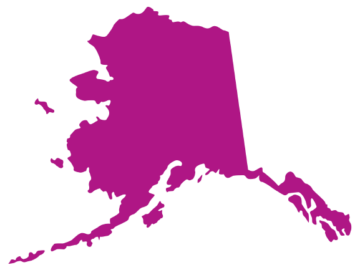
Scale: Alaska-wide
Client:
Arctic Research Consortium of the U.S. (ARCUS)
Client type:
Non-profit organization
Project Date: January 2020 – April 2021
Project Lead: Alli Harvey
The Challenge
Science, Technology, Engineering, and Mathematics (STEM) programming in Alaska’s Arctic varies widely. But one trend is consistent: youth and undergraduates from Alaska Native communities within these programs are broadly underrepresented.
ARCUS hired Information Insights to support them, with guidance of a steering committee (see team below), in exploring how to better engage Alaska Native and Rural undergraduates and youth in STEM programs and create new guidance for program design, implementation, and marketing. Information Insights supported agenda design and facilitated Listen and Learn exploration sessions, and led facilitation of the three-day workshop.
This project started in early 2020 with several in-person Listen and Learn Sessions to engage Alaska Native and Rural youth across Alaska. The intent was to host an in-person workshop, but the April 2020 in-person workshop was canceled due to Covid-19 and ultimately re-imagined and hosted as a fully virtual workshop.
The Team
The entities working on the project included representatives from the Interagency Arctic Research Policy Committee (IARPC) Arctic STEM Education Working Group, the Arctic Research Consortium of the U.S. (ARCUS), International Arctic Research Center at the University of Alaska Fairbanks (IARC), and Information Insights. ARCUS was funded by the National Science Foundation.
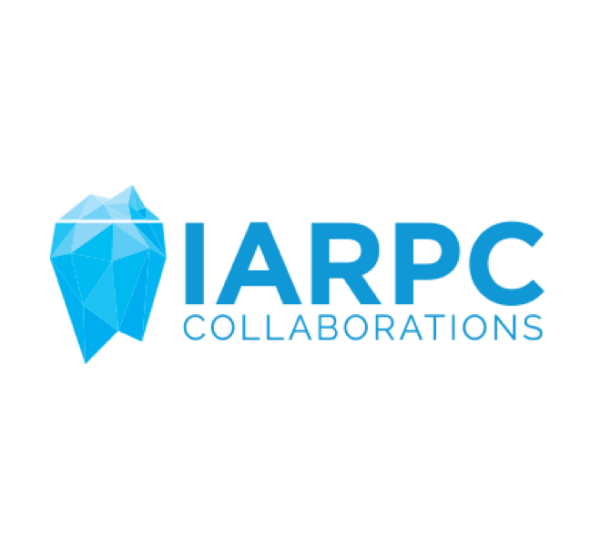
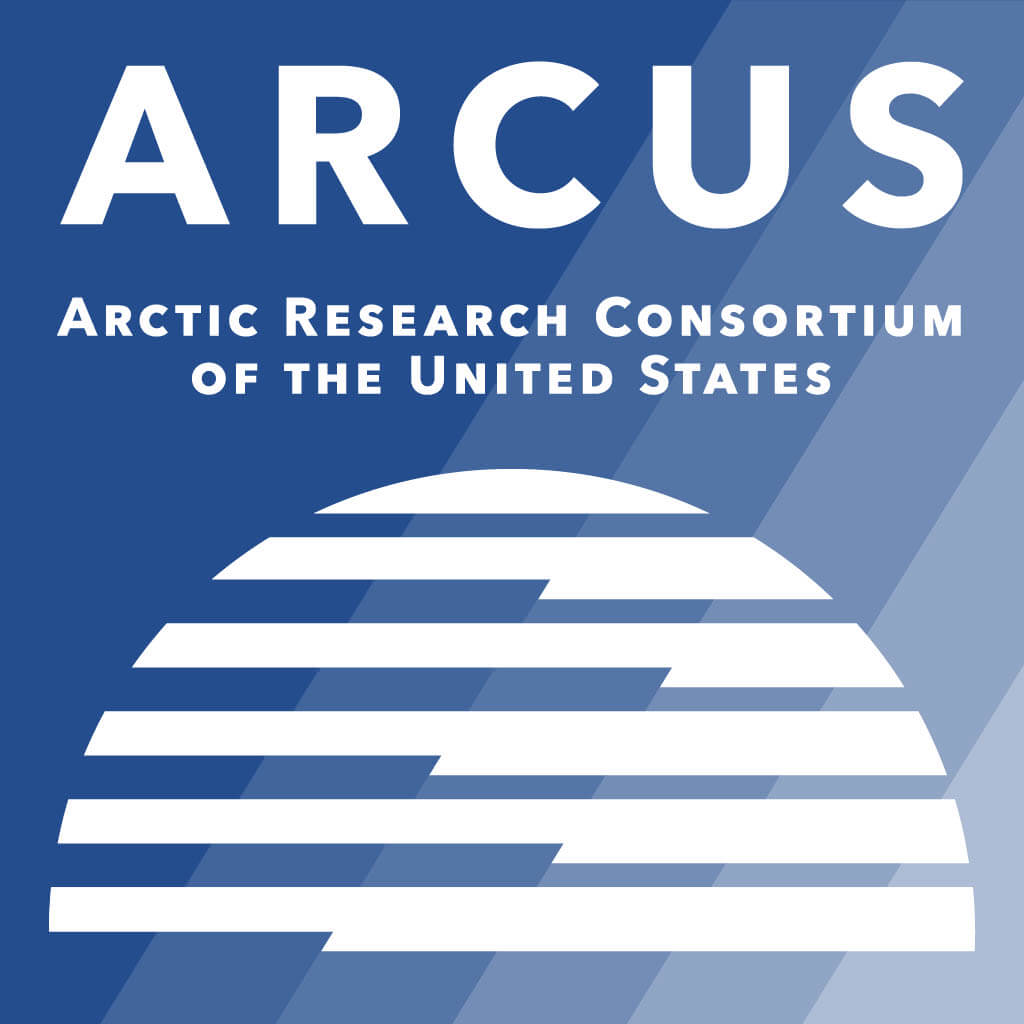
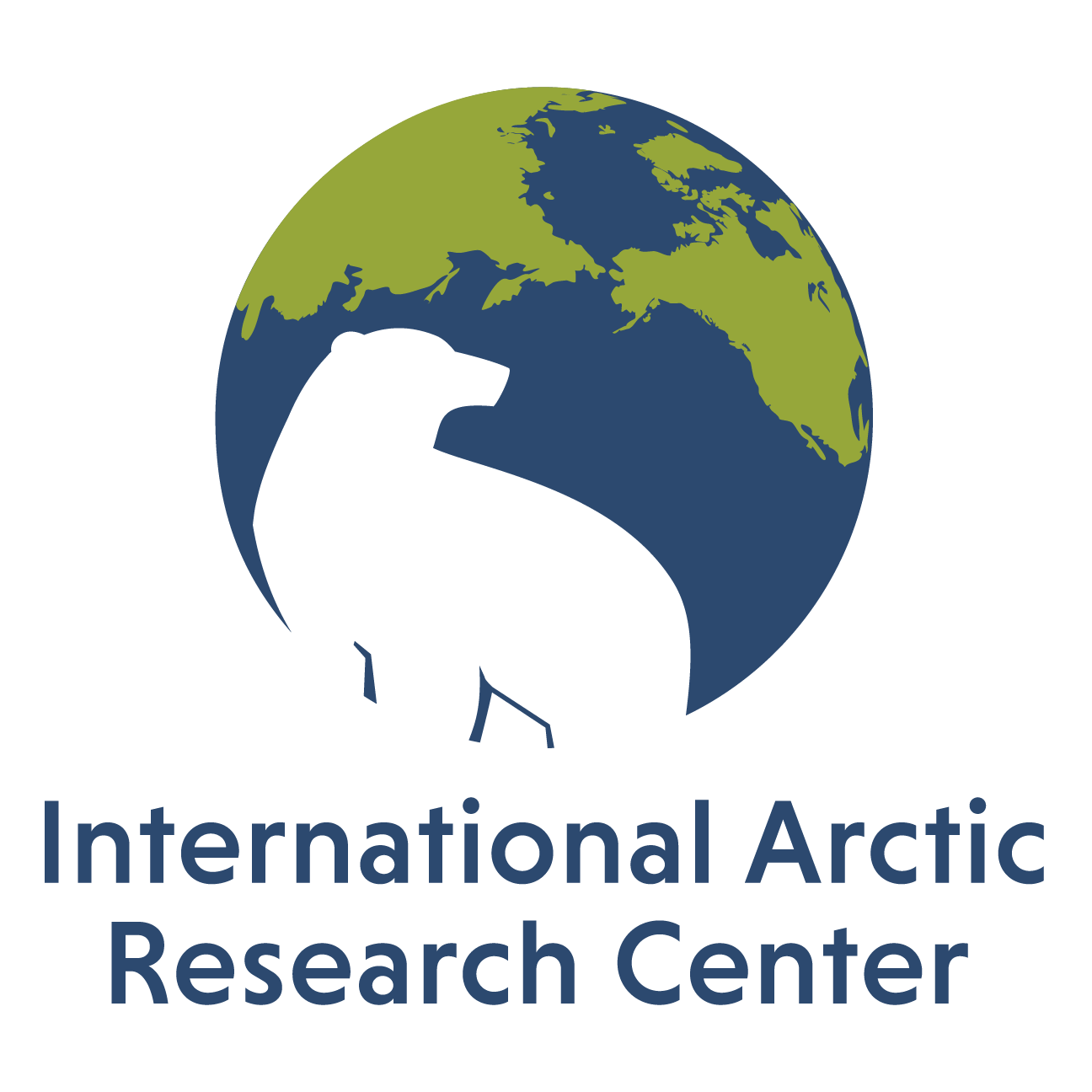
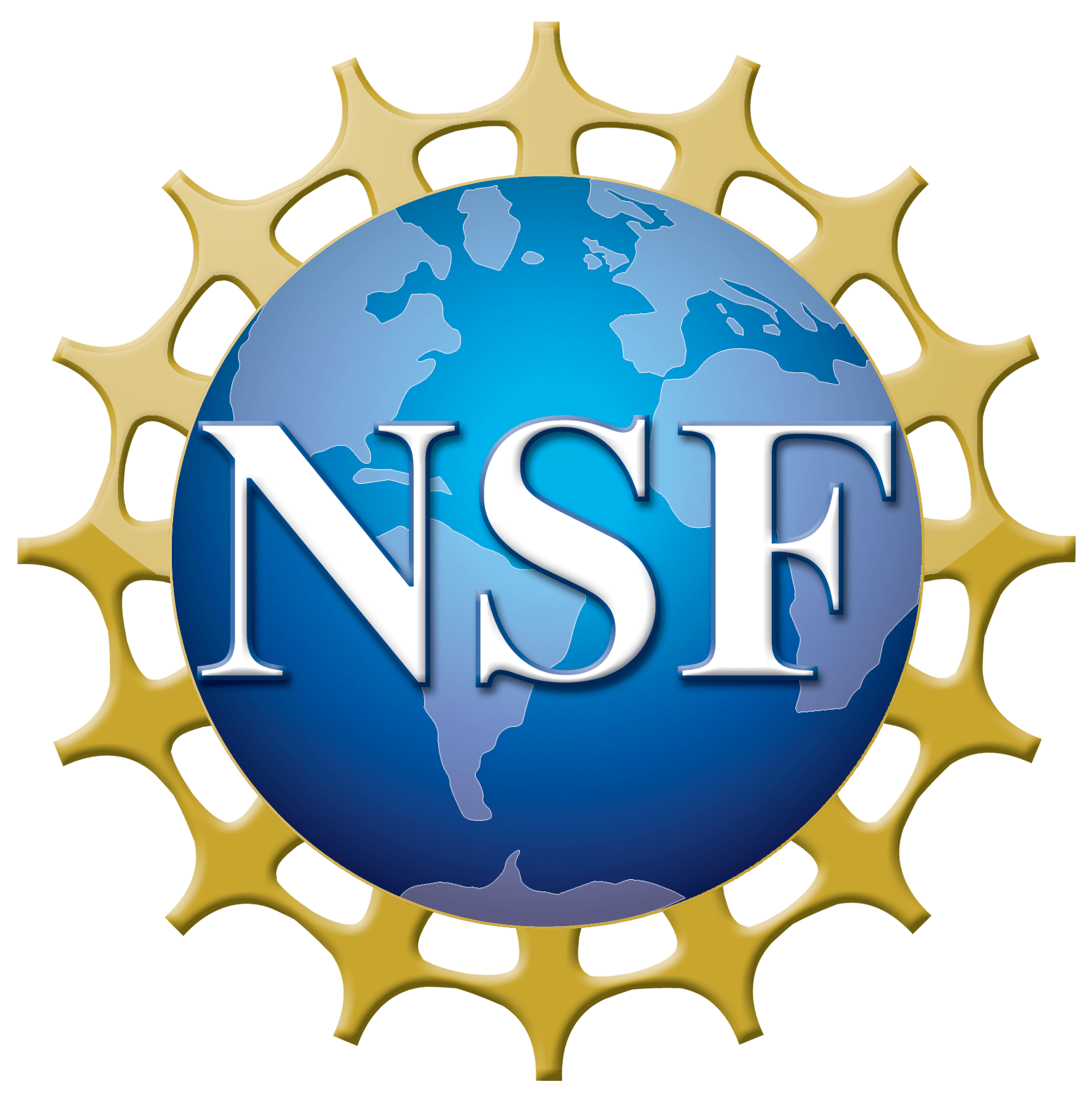
Our Approach
The virtual workshop Engaging Rural and Alaska Native Undergraduates and Youth in Arctic STEM was held from April 13–15, 2021. The goal of the workshop was to bring together relevant rural and Alaska Native entities and community members to discuss the gaps, challenges, opportunities, and successful practices to increase and support the representation of Rural and Alaska Native undergraduates and youth in STEM education and career pathways. This workshop was guided by two main questions:
What can be done to increase Rural and Alaska Native undergraduate and youth participation in existing Arctic STEM programs?
What can programs do differently or how can programs adapt to support student engagement?
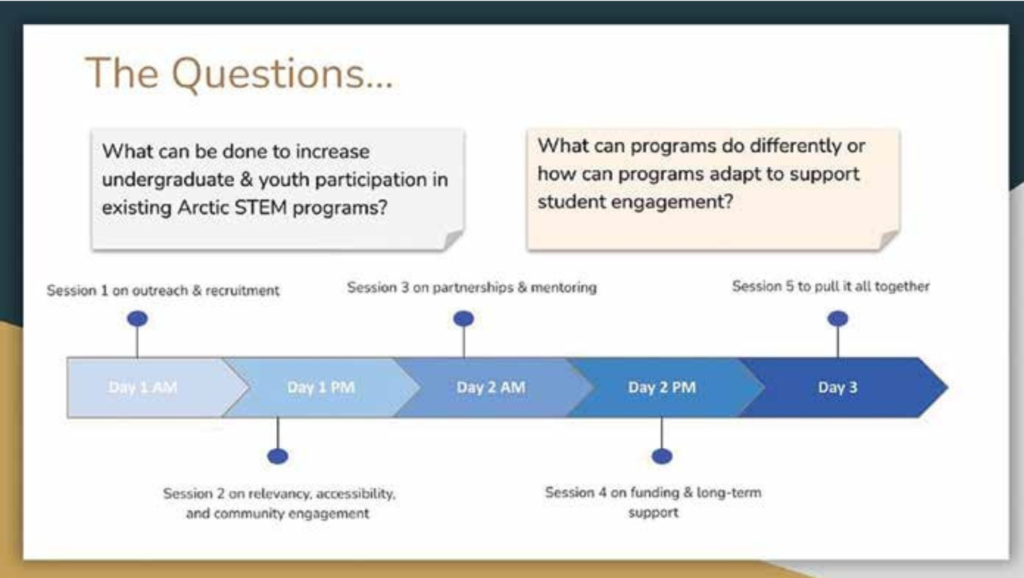
A series of Listen and Learn Sessions were held before the workshop to set foundational themes and draft recommendations to be discussed and refined during the workshop.
Information Insights didn’t facilitate alone. Volunteer facilitators and notetakers from the organizing team stepped up to support facilitation of the many breakout rooms during the sessions. Information Insights provided training on facilitation, including virtual tips and tricks and engaging note taking tools. Information Insights also collated learnings from all sessions into overall top line themes that informed “bringing it all together” on the final day of the workshop, and the final report.
The Results
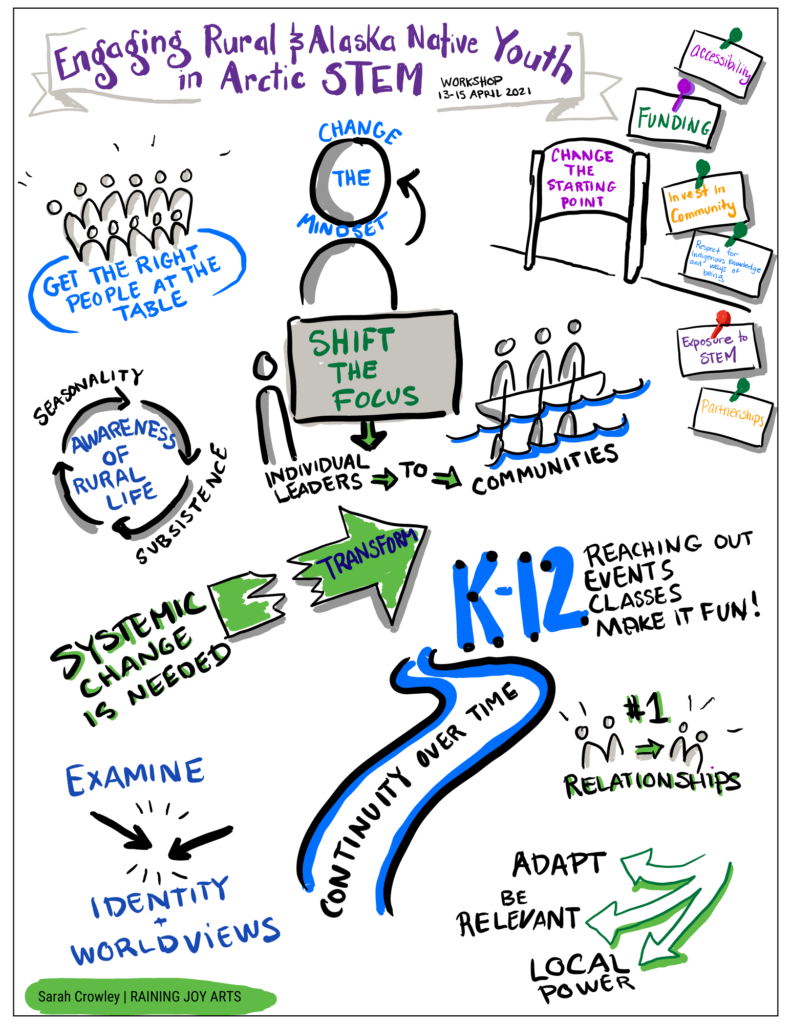
Engagement remained high throughout all three workshop days, with overall excellent and consistent participation in both breakout rooms and full group discussion.
By the end of the workshop, a list of recommendations was created in response to the two main questions posed and unpacked during the workshop (What can be done to increase rural and Alaska Native undergraduate and youth participation in existing Arctic STEM programs?
What can programs do differently or how can programs adapt to support student engagement?). The resounding feedback from participants, both during the workshop and in the follow up survey, was that even though the workshop was the starting point for longer-term work to increase representation in Arctic STEM programs in a meaningful way, the design of the workshop was an excellent and thoughtful start.
View the comprehensive final report.
